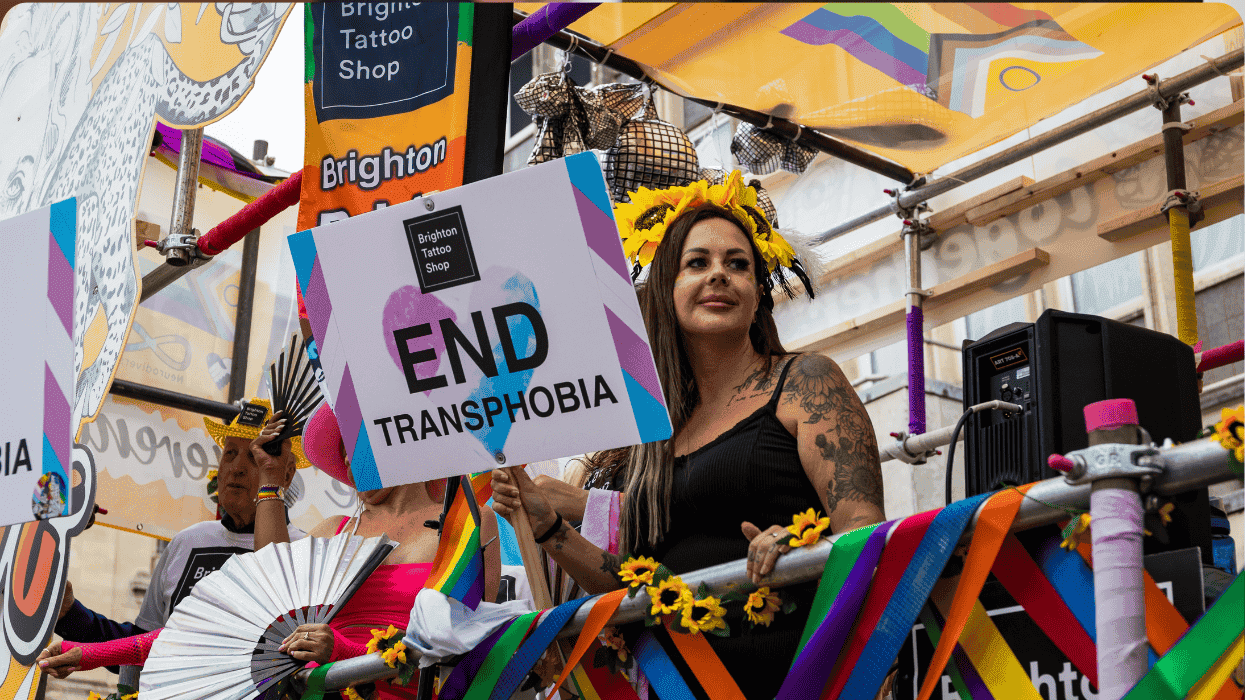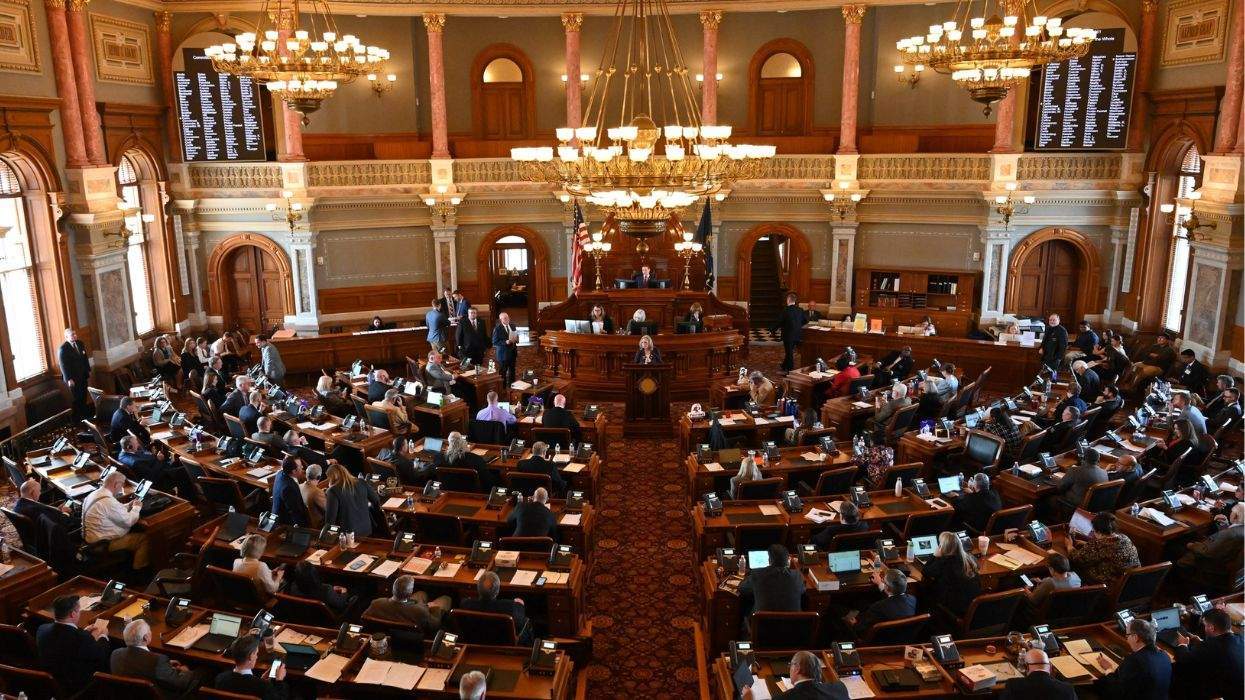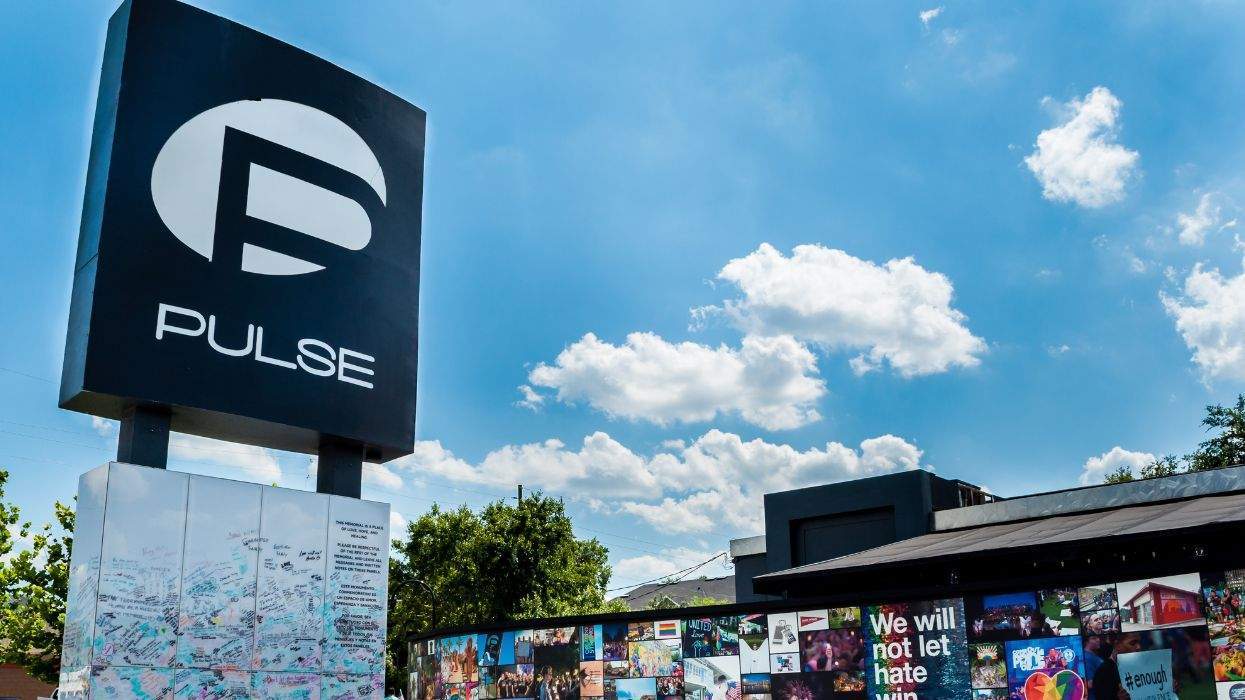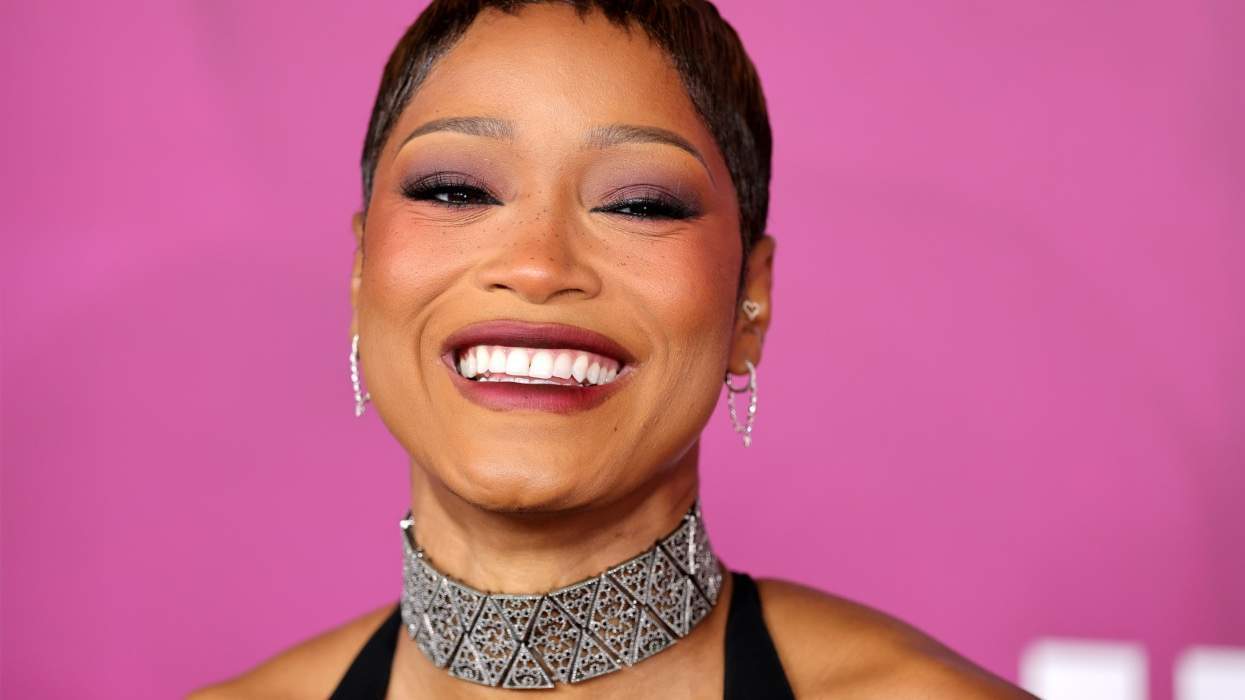Peter Fonda loves Westerns. By telling universal truths through stories of the American frontier, the two-time Academy Award nominee says, the genre gives moviegoers insights into modern society without forcing audiences to take political sides.
In 3:10 to Yuma, a remake of a 1957 Western of the same name helmed by Walk the Line director James Mangold, Fonda plays bounty hunter Byron McElroy. With the assistance of a local rancher (Christian Bale), Fonda is commissioned to get outlaw Ben Wade (Russell Crowe) on a train--the 3:10 to Yuma -- bound for a nearby prison. Of course, Wade's gang has other ideas.
Fonda sits down with us to discuss the film as well as his involvement in the 2002 television movie The Laramie Project and to reveal the surprising influence gays had on Easy Rider, the 1969 film that made him a cultural icon.
Russell Crowe and Christian Bale have a real chemistry in 3:10 to Yuma.
There's a growth that happens between those characters. At the beginning you can see Ben Wade, the Russell Crowe character, has run out of places to go. He's got his [gang], but he's tired of it. [Eventually],you buy that Wade kills all these people in defense of Evans [Bale], who he puts down at the top of the film then becomes almost a guardian for at the end.
Wade points out your character is not much different than his--except your actions are under the guise of the right side of the law.
It's not just the black hats and the white hats. Of course, we mean it in a different way than the actual color of the hat. We mean good and evil. It's so difficult to actually pinpoint good and evil--both in today's world and the past--because there's good and evil in all of us. Hopefully, we triumph more good over evil, but the conflict is in our hearts. Not everyone has a truly good heart. Down the road they're going to make some bigoted or racist remark, feel some hatred, feel like they'd lash out, or actually lash out or be hurtful, even though they're not really hurtful people. They might not even know they have that inside them. When you watch something like the Western, it exposes those facets. You might think Byron is a lawman, but I'm not. I'm lawless. I'm as lawless as Ben Wade, but I don't see it.
Speaking of people lashing out in hatred, tell me about playing Dr. Cantway in The Laramie Project, the Matthew Shepard story.
I like getting to be that character who delivers the story, the facts, without judgment. Did the kid deserve it? No, nobody deserves that. It was terrible. My nephew, Troy Garity, did [2003 independent film] Soldier's Girl, where he falls in love with a transgender person. We watched it at Sundance together. He did an incredible job, because he took the audience into an area they probably didn't want to go. [His character] gets beaten up too, because of intolerance, but he's not gay. The perception is that he's gay, and we have no tolerance for things we don't feel are right. What the fuck does that mean? What's not right? I have a T-shirt--I like T-shirt activism--that says "So Many Christians, So Few Lions." We have intolerance in the weirdest way. There are Christian rights who say [homosexuality is] a sickness and can be cured. It's not a sickness, it's just the way people are--gay women, gay men. It's just the way they are. To say they are bad? To say they're outside the norm? What the fuck is the norm? And who are we to decide? We are who we are. If you can accept that with people, you're making forward progress.
As Captain America in Easy Rider, you became a sexual icon--including among gay men of the era.
[Easy Rider costar and cowriter Dennis] Hopper wanted me to wear white leather. I designed the bikes. I built them. I designed the costumes. When he wanted me to wear white leather, I said no. I wanted to appeal to the gay community. The black leather is going to carry it--and this great phallic symbol. [Fonda motions toward his crotch, a smile on his face.] Not just the gas tank, but the whole goddamn motorcycle and front end extending out. He thought I was nuts for saying that, but I knew exactly what I was talking about. In white leather it just wouldn't have been the same. With black leather I can cross over borders!














